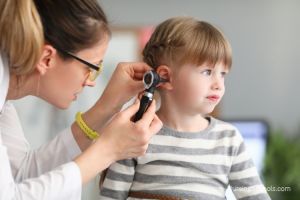Family Nurse Practitioner (FNP) Career Guide

Overview
What Is a Family Nurse Practitioner?
A Family Nurse Practitioner (FNP) is an Advanced Practice Registered Nurse (APRN) who provides primary and specialty healthcare services to individuals and families across the lifespan. FNP diagnose and treat illnesses, perform physical exams, prescribe medications, and educate patients on disease prevention and health maintenance.
Family Nurse Practitioners often serve as primary care providers in clinics, private practices, community health centers, and other outpatient settings. They care for children, adults, and older adults, focusing on long-term patient relationships and preventative care.
This role blends clinical expertise with holistic care, allowing the Family Nurse Practitioner to manage both acute and chronic conditions while promoting wellness in diverse populations.
Education
How To Become a Family Nurse Practitioner
Becoming a Family Nurse Practitioner requires a combination of graduate-level nursing education, clinical experience, national certification, and specialized training in family practice, pediatrics, or internal medicine. Follow these steps to enter this challenging and rewarding healthcare career:
- Earn a BSN. Complete a Bachelor of Science in Nursing (BSN) from an accredited nursing program.
- Pass the NCLEX-RN. Obtain licensure as a Registered Nurse (RN) by passing the National Council Licensure Examination.
- Gain Clinical Experience. Work as an RN to build foundational skills in patient care, often in family practice, pediatrics, or internal medicine settings.
- Complete a Graduate Program. Enroll in a Master of Science in Nursing (MSN) or Doctor of Nursing Practice (DNP) program with a Family Nurse Practitioner track accredited by the Commission on Collegiate Nursing Education (CCNE) or the Accreditation Commission for Education in Nursing (ACEN).
- Obtain National Certification. Pass the FNP certification exam through the American Association of Nurse Practitioners (AANP) or the American Nurses Credentialing Center (ANCC).
- Apply for State Licensure. Receive state licensure as a Nurse Practitioner with a Family Nurse Practitioner population focus area.
How long does it take to become a Family Nurse Practitioner? It typically takes 6 to 8 years to become a Family Nurse Practitioner, including undergraduate and graduate education. FNP must maintain certification through continuing education and periodic recertification exams.

Average Salary
How Much Does a Family Nurse Practitioner Make?
Family Nurse Practitioner salaries vary based on location, experience, and healthcare setting. On average, a Family Nurse Practitioner can expect to earn between $90,000 and $160,000 annually.
Average annual salary for a Family Nurse Practitioner:
- Entry-level: $90,000 - $115,000 per year.
- Mid-career: $115,000 - $135,000 per year.
- Experienced: $135,000 - $160,000+ per year.
The latest salary report from the U.S. Department of Labor reports that Nurse Practitioners earn an average salary of $124,680 annually, or about $59.94 per hour. Family Nurse Practitioners working in rural health clinics or underserved areas may also qualify for loan repayment incentives through federal or state programs.
Family Nurse Practitioners often begin their careers working under physicians or in team-based care models. With experience and financial planning, many go on to operate independently, manage their own patient panels, or open private practices in states that allow full practice authority. Other opportunities include transitioning into clinical leadership, teaching future nurse practitioners, or specializing further in areas such as women's health or integrative medicine.
Job Duties
What Does a Family Nurse Practitioner Do?
Family Nurse Practitioners provide comprehensive healthcare services across all age groups. They focus on building long-term relationships with patients, emphasizing disease prevention, chronic disease management, and coordinated care. The most common job duties of a Family Nurse Practitioner include:
- Conducting Physical Exams. Perform routine checkups, developmental screenings, and annual wellness visits for patients of all ages.
- Diagnosing and Treating Illnesses. Evaluate symptoms, order diagnostic tests, and manage both acute and chronic conditions like diabetes, hypertension, and asthma.
- Prescribing Medications. Write prescriptions and manage medication regimens according to state scope-of-practice laws.
- Developing Care Plans. Create individualized treatment plans that address both short-term needs and long-term health goals.
- Providing Preventive Care. Offer immunizations, health screenings, smoking cessation counseling, and lifestyle coaching.
- Educating Patients and Families. Teach self-care techniques and help patients understand their diagnoses and treatment options.
- Coordinating Referrals. Refer patients to specialists, therapists, or social services when additional support is needed.
- Advanced Duties. Experienced FNP may supervise clinic operations, precept graduate nursing students, or participate in public health initiatives and policy advocacy.
Family Nurse Practitioners often work in outpatient settings such as private practices, community clinics, or health centers. Their day typically involves back-to-back patient appointments, clinical documentation, and coordination with medical assistants or administrative staff. While the pace can be fast and emotionally demanding, especially in high-volume or rural clinics, FNP benefit from having consistent schedules and the ability to form long-term relationships with patients. This continuity of care allows them to make a lasting impact on the health and well-being of individuals and families.

Essential Skills
What Skills Does a Family Nurse Practitioner Need?
Family Nurse Practitioners require a broad clinical knowledge base, strong communication skills, and the ability to manage diverse patient populations. They must be comfortable providing care for all ages and stages of life. Here are some of the skills a Family Nurse Practitioner needs to succeed:
- Comprehensive Clinical Knowledge. Understand diagnostic and treatment approaches across pediatrics, adult medicine, and geriatrics.
- Diagnostic Reasoning. Interpret patient history, physical exam findings, and test results to make accurate clinical decisions.
- Communication. Clearly explain complex medical topics to patients and collaborate effectively with interdisciplinary teams.
- Patient Education. Empower patients to manage their own health through education, motivational interviewing, and coaching.
- Chronic Disease Management. Monitor and treat long-term conditions like high blood pressure, diabetes, and high cholesterol.
- Cultural Competence. Provide respectful, individualized care to patients from diverse backgrounds and communities.
- Time Management. Balance preventive, acute, and chronic care visits efficiently in a busy outpatient setting.
- Autonomy and Leadership. Practice independently within scope and contribute to quality improvement and healthcare delivery innovation.
One of the greatest challenges for Family Nurse Practitioners is staying current on best practices across a wide range of conditions and age groups. FNP must quickly shift focus from a child's ear infection to an adult's diabetes follow-up to counseling a senior on fall prevention. All while charting and managing patient flow with the help of skilled office staff. Despite the complexity, many Family Nurse Practitioners find the variety and autonomy energizing.
Work Environment
Where Does a Family Nurse Practitioner Work?
Family Nurse Practitioners (FNP) work in a wide variety of clinical settings that provide primary and preventive care across all age groups. They often serve as the first point of contact for patients, diagnosing illnesses, managing chronic conditions, and promoting overall wellness. The most common workplaces for a Family Nurse Practitioner include:
- Private Practices. FNP manage patient panels, perform routine exams, prescribe medications, and coordinate care in physician-owned or independent clinics.
- Community Health Centers. Deliver care to underserved populations, address public health concerns, and support patient education and outreach programs.
- Retail Clinics and Urgent Care Centers. Provide walk-in care for minor illnesses, injuries, and health screenings in fast-paced, high-access environments.
- School-Based Clinics. Offer health services to children and adolescents within K–12 or college settings, including physicals, immunizations, and acute care visits.
- Telehealth Platforms. Conduct remote consultations for non-emergency conditions, chronic disease follow-up, and medication management via secure video platforms.
Most Family Nurse Practitioners spend their day in exam rooms, consulting directly with patients, writing prescriptions, and coordinating follow-up care. They typically work 40-hour weeks in outpatient settings, although some may take evening or weekend shifts based on clinic hours or patient needs. The FNP role allows for both autonomy and continuity of care, often forming long-term relationships with individuals and families over time.
Last updated: June 11, 2025
References:
- Nurse Anesthetists, Nurse Midwives, and Nurse Practitioners. Bureau of Labor Statistics, U.S. Department of Labor. Occupational Outlook Handbook. Retrieved June 11, 2025.
- NCLEX Nurse Licensure Exam. National Council of State Boards of Nursing (NCSBN). Retrieved June 11, 2025.
- Family Nurse Practitioner Salary in the United States. ZipRecruiter, Healthcare Career Path. Retrieved June 11, 2025.
- How To Become a Registered Nurse. Indeed, Healthcare Career Guide. Retrieved June 11, 2025.
- Become a Family Nurse Practitioner. Johnson & Johnson, Nursing Careers. Retrieved June 11, 2025.
- State Practice Environment. American Association of Nurse Practitioners (AANP). Retrieved June 11, 2025.
- Nurse Practitioners in Primary Care. American Association of Nurse Practitioners (AANP). Retrieved June 11, 2025.
- Family Nurse Practitioner (FNP). American Academy of Nurse Practitioners Certification Board (AANPCB). Retrieved June 11, 2025.
- Family Nurse Practitioner Certification (FNP-BC). American Nurses Credentialing Center (ANCC). Retrieved June 11, 2025.
- What Is a Family Nurse Practitioner (FNP) and What Do They Do?. University of St. Augustine for Health Sciences. Retrieved June 11, 2025.
- MSN - Family Nurse Practitioner (FNP). University of Pennsylvania, Academic Programs. Retrieved June 11, 2025.
- Earnings, job satisfaction, and turnover of nurse practitioners across employment settings. Hnath, Joseph G P et al. Health Affairs Scholar. Retrieved June 11, 2025.
- Nurse Practitioner Licensure. Virginia Department of Health Professions. Retrieved June 11, 2025.


